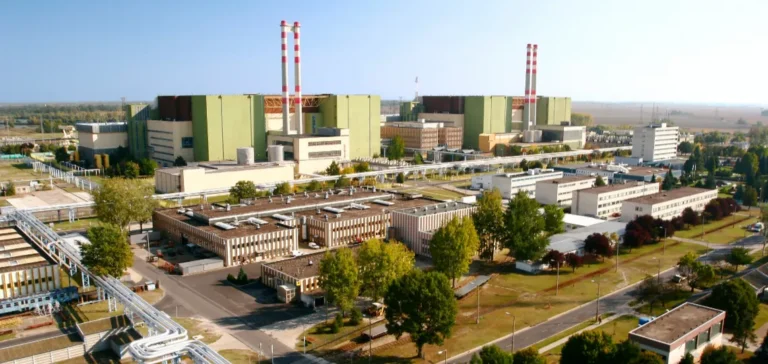Hungarian energy group MVM has signed a $114mn contract with US-based Westinghouse Electric Company to supply fuel for the VVER-440 reactors at the Paks nuclear power plant. Deliveries are scheduled to begin in 2028 as part of a national strategy to diversify nuclear fuel sources.
Towards enhanced energy independence
Historically supplied by Russia, the Paks plant—located 100 kilometres south of Budapest—operates four VVER-440 pressurised water reactors commissioned between 1982 and 1987. The new agreement will enable Hungary to expand its fuel supply options. Westinghouse has already established a customer base in countries operating VVER reactors, including Ukraine, Bulgaria, the Czech Republic and Finland.
Károly Mátrai, Chief Executive Officer of MVM Group, stated that the deal would improve both operational safety and flexibility for the plant. He added that the improved predictability of supply would help ensure affordable energy for households and businesses.
Regional nuclear ambitions backed by Washington
The agreement is part of a broader cooperation framework between the United States and Hungary in the civil nuclear sector. A recently signed memorandum of understanding outlines plans to begin negotiations on joint projects involving small modular reactors (SMRs) and spent fuel storage. Hungary has signalled its intention to support the construction of up to 10 SMRs, with a potential total value of $20bn.
Tarik Choho, President of Nuclear Fuel at Westinghouse, noted that the deal strengthens the company’s service to all European and Ukrainian VVER operators.
Framatome also in the supply strategy
As part of the same diversification plan, MVM is set to begin receiving VVER-440 fuel deliveries from French group Framatome starting in 2027. The move is aimed at mitigating the risks of a single-source dependency in a volatile geopolitical context.
In parallel, US authorities confirmed Hungary’s exemption from any energy-related Russian sanctions that could impact the Paks II project. This extension plan, based on an intergovernmental agreement signed in 2014, involves the construction of two VVER-1200 reactors. The project is 80% financed through a EUR10.0bn ($10.5bn) state loan from Russia. First concrete for the new unit is scheduled for February 2026.






















